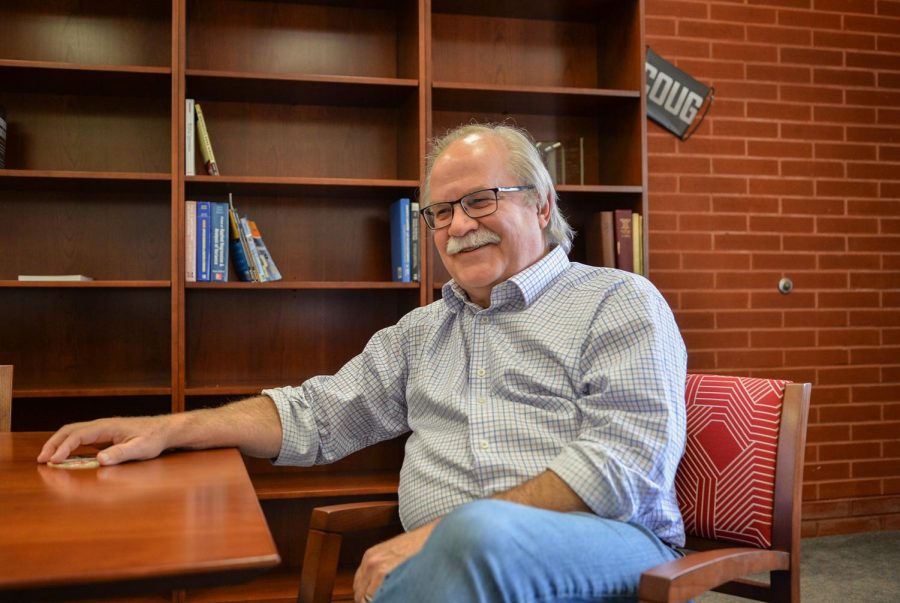- Administration
- COVID-19
- Faculty
- Local
- News
- Pullman Community
- Safety
- TOP FEATURES
- WSU Pullman campus
- WSU Spokane
- WSU Tri-Cities
- WSU Vancouver
WSU officials solidify plan for fall instruction
Residence halls will house one student per dorm; students will sit 6 feet apart in classes, 12 feet from instructors
ABIGAIL LINNENKOHL | DAILY EVERGREEN FILE
WSU Interim Provost Bryan Slinker said signage will be used to direct students through hallways and maintain social distancing.
June 26, 2020
WSU still plans for in-person fall instruction, but officials confirmed the semester will move to online learning after Thanksgiving. This is among many changes addressed during the WSU COVID-19 Town Hall held on Wednesday afternoon.
Class sizes will not exceed 50 students, and students will have assigned seating patterns, WSU Interim Provost Bryan Slinker said. Instructors must remain 12 feet from students, and students must sit at least 6 feet apart.
Signage directing students through the hallways will also help maintain social distancing guidelines, Slinker said.
Large parties or gatherings will be prohibited, said Mary Jo Gonzales, WSU Vice President of Student Affairs. Student organizations may still table, but the school will place limits on in-person activities and the transaction of merchandise.
“If you’re not going to follow the rules and not do what you are asked to do … you should consider other arrangements for fall,” Gonzales said.
Sporting events are postponed while officials from WSU Athletics wait for county and state guidance on how to host games and trainings, said Athletics Director Pat Chun. More than 100 student-athletes have been cleared for voluntary workouts.
WSU Residence Life
Residence halls will house only one resident per room, but the school will honor placement for friends and long-term requests, Gonzales said.
Guests will not be allowed in dorms and move-in will occur over an extended period of time, Gonzales said. Kitchens, lounges and study spaces will be opened in phases as well.
Contact tracing will determine whether a student should isolate or quarantine themselves, Slinker said. Contact tracing, similar to the attestation required for WSU on-campus employees, asks people to self-report on whether they feel sick or have made contact with someone who has the virus.
Dining, Food and Recreational Services
Dining facilities and recreational spaces such as the CUB, Chinook Student Center and UREC will also have reduced capacity, Gonzales said. Wellness checks will be required especially in workout areas, which may include temperature checks, she said.
Cougs Feeding Cougs, a program that donates leftover RDA to students in need of extra resources, will continue in the fall, Gonzales said. The school is working to develop more no-touch payment options at food halls, and Gonzales said students should download the GET app to help this goal.
Cougar Health Services will also remain open for telehealth conferences and some in-person services, but students must call to make an appointment, Gonzales said.
Budget and Fiscal Situation
Phil Weiler, WSU Vice President of Communications and Marketing, confirmed the state has required a $37.2 million budget cut that will be planned more after the Board of Regents meetings.
Classified staff will see a 3 percent increase in salaries. Depending on the outcome of the Board of Regents meetings, students may have a 2.5 percent increase in undergraduate and graduate tuition. For undergraduate students, this amounts to about $250 for residents and about $500 for out-of-state students.
“This will be a period of really tight budget constraints,” Weiler said.
International Students
International students will face a unique set of challenges, and Weiler said those wondering about their ability to return to WSU should email the international programs department at ip.intlservices@wsu.edu.










